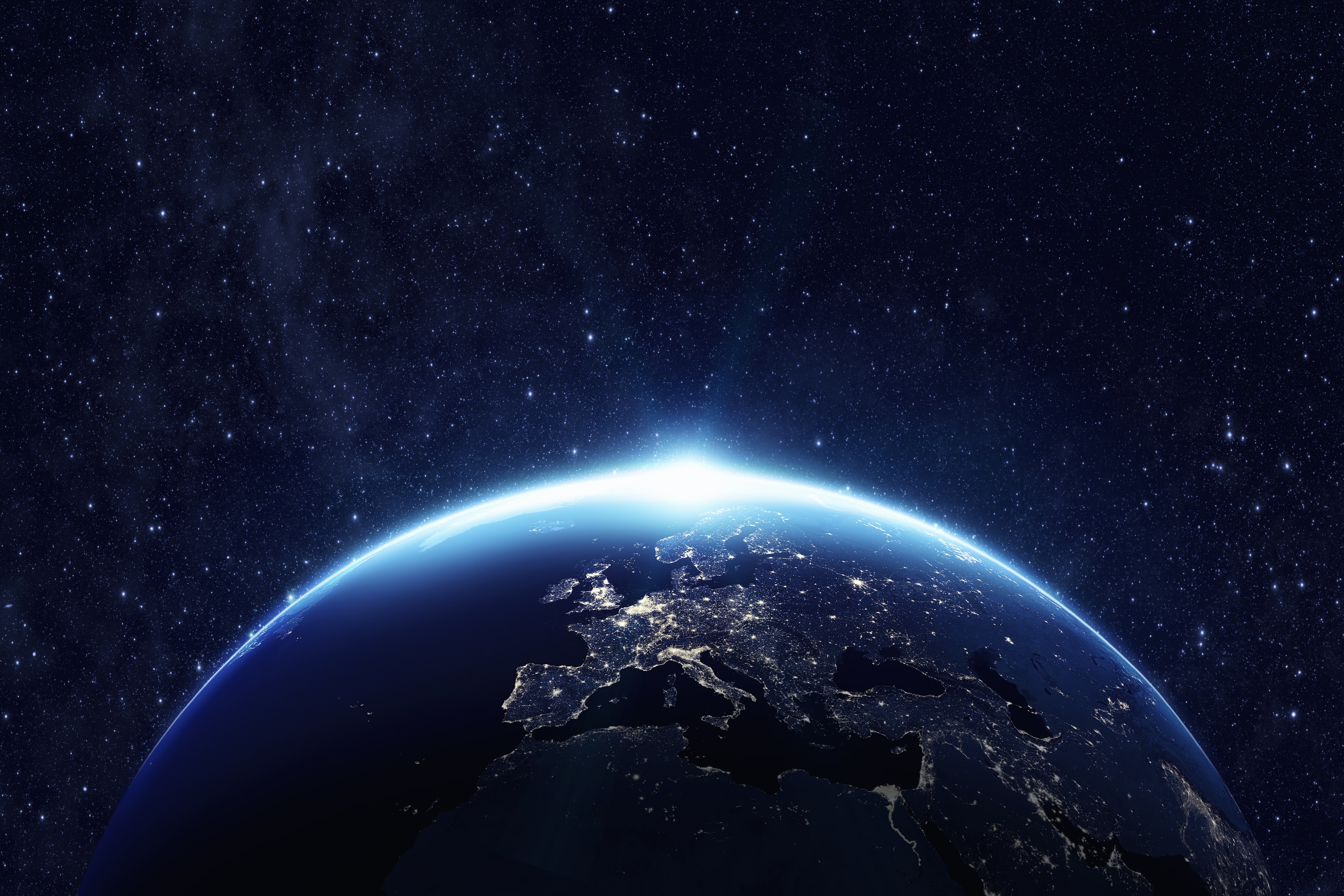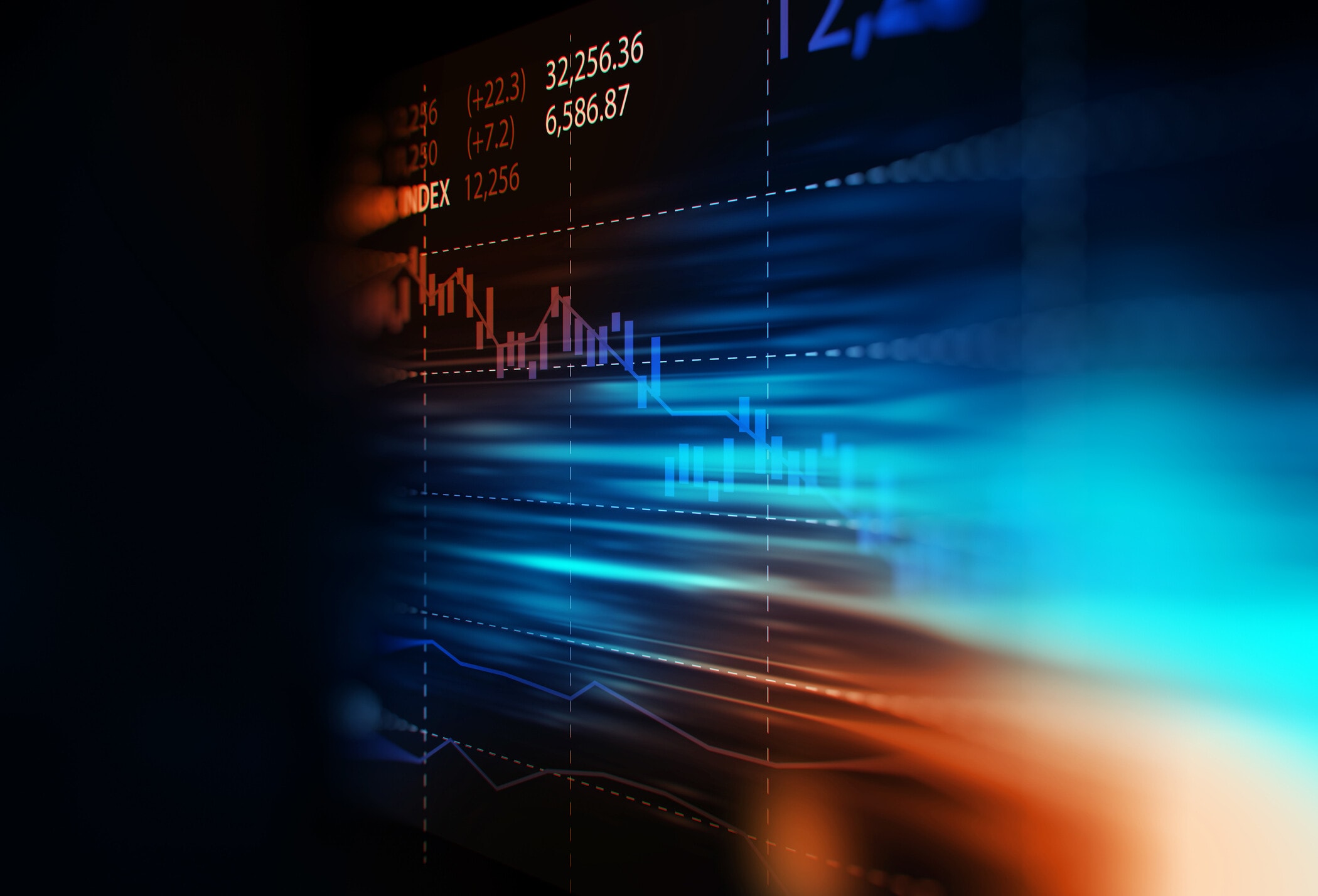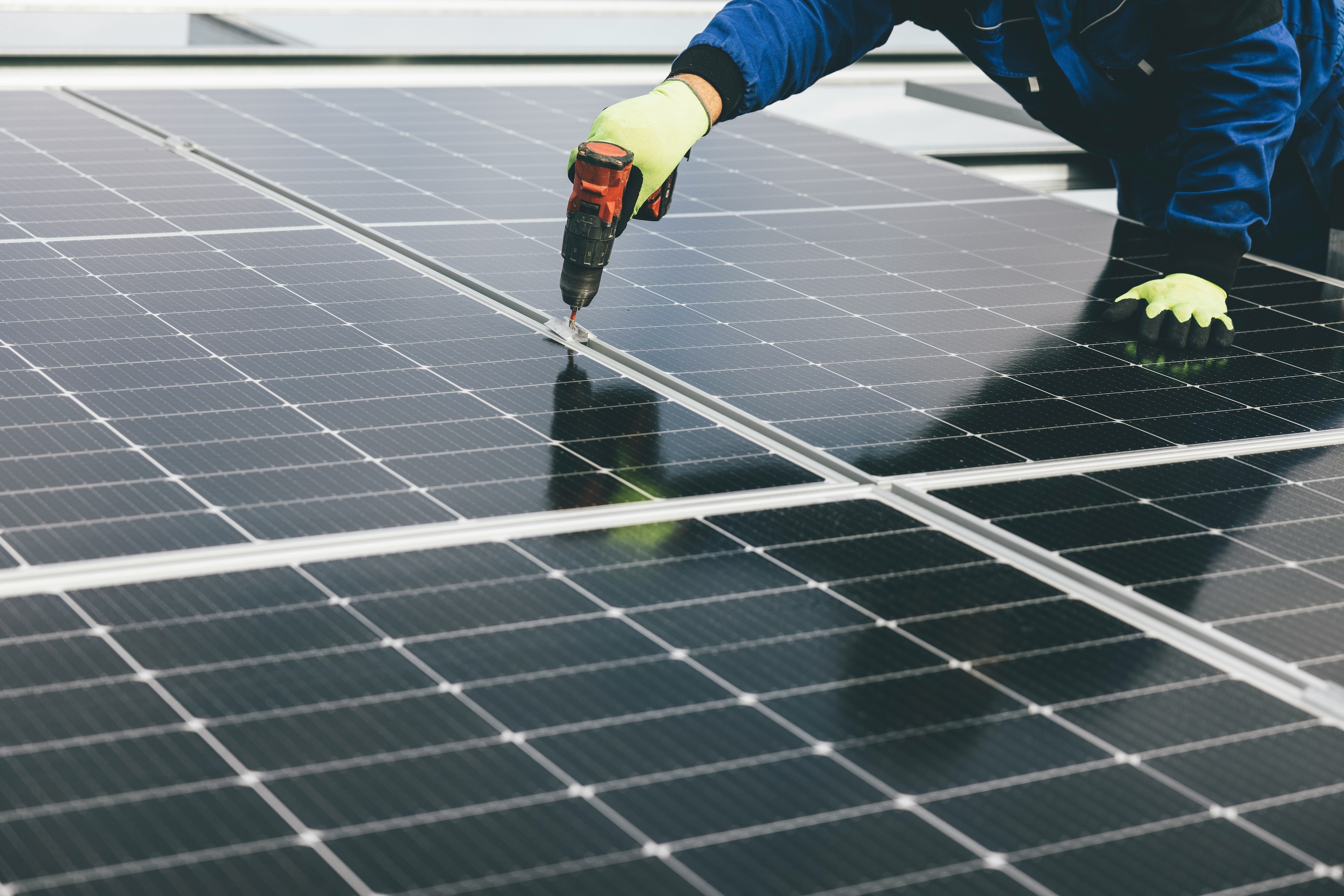This year’s Nobel Prize winners highlight some of the world’s biggest challenges - and how to address them

Here's what you need to know about the newest Nobel Prize winners.
Image: REUTERS/Tom Little
- All the Nobel Prize winners for 2024 have been announced, including the Nobel Peace Prize to a group of atom bomb survivors in Japan.
- Several Nobel laureates this year were awarded for developing machine learning tools and discoveries that have used AI.
- From economics to physics, literature to peace, here's what you need to know about this year's Nobel laureates and their foundational work to address the world's biggest challenges.
In the latest mid-year briefing from the World Economic Forum’s community of Chief Risk Officers, declining geopolitical and geoeconomic relations between major economies are a key concern, with 96% anticipating ‘widespread volatility’ for the remainder of 2024.
This sobering outlook is this year's context as the Nobel Peace Prize is awarded to a grassroots group of atom bomb survivors in Japan.
The Nihon Hidankyo organization of "Hibakusha", as the survivors are called, is the largest of its kind in Japan. Through the personal testimonies of the survivors, the group has helped global efforts to oppose nuclear weapons.
Chair of the Norwegian Nobel Committee Joergen Watne Frydnes told Reuters: "In a world ridden [with] conflicts ... we wanted to highlight the importance of strengthening the nuclear taboo, the international norm, against the use of nuclear weapons."
All six Nobel Prize winners for 2024 have now been announced. Here's what you need to know about the newest laureates and what their work has meant for solving some of the world's biggest challenges.
How is the World Economic Forum creating guardrails for Artificial Intelligence?
The Nobel Prize in Economics 2024
The Economics prize was awarded to three academics, whose research into inequality has shown a link between institutions and prosperity.
British-Americans Simon Johnson and James Robinson and Turkish-American Daron Acemoglu, whose book Power and Progress: Our Thousand-Year Struggle Over Technology and Prosperity was published last year, explored how former colonies' fortunes had changed.
Societies with a poor rule of law and institutions that exploit the population do not generate growth or change for the better, said the Royal Swedish Academy of Sciences.
Accept our marketing cookies to access this content.
These cookies are currently disabled in your browser.
"Reducing the vast differences in income between countries is one of our time's greatest challenges," said Jakob Svensson, Chair of the Committee for the Prize in Economic Sciences.
In September 2024, the Forum's quarterly Chief Economists Outlook found four times as many economists expect the global economy to weaken (37%) rather than strengthen (9%).
A lack of political consensus or will (cited by 91%) and a lack of global collaboration (67%) were seen as the main obstacles to growth.
"I think this is a time when democracies are going through a rough patch," Acemoglu told the Nobel press conference. "And it is in some sense quite crucial that they reclaim the high ground of better governance, cleaner governance, and delivering sort of the promise of democracy to a broad range of people."
Accept our marketing cookies to access this content.
These cookies are currently disabled in your browser.
The Nobel Peace Prize 2024
Next year will mark 80 years since the Nagasaki and Hiroshima atomic bombs marked the end of World War II, and killed 120,000 people, with thousands more injured.
There are more than 106,000 atomic bomb survivors in Japan today, with an average age of 85.6 years, according to the health ministry.
In 1956, local Hibakusha organizations came together to form the Japan Confederation of A- and H-Bomb Sufferers Organizations, later shortened to Nihon Hidankyo.
The group has issued resolutions and public appeals, and sent annual delegations to bodies such as the UN and peace conferences to advocate for nuclear disarmament.
The Nobel Committee in Norway said the group had demonstrated "through witness testimony that nuclear weapons must never be used again".
Accept our marketing cookies to access this content.
These cookies are currently disabled in your browser.
It's a poignant message that comes at a time of heightened global volatility and mistrust. Yet the Forum's Global Cooperation Barometer, released in January, suggests, "cooperation and confrontation can coexist should not come as a surprise. History is replete with parties at odds with one another, but still seeking opportunities for collaboration."
The Nobel Prize in Literature 2024
South Korean author Han Kang, was awarded the prize for literature “for her intense poetic prose that confronts historical traumas and exposes the fragility of human life”.
In 2016, she won the Man Booker International Prize for fiction for The Vegetarian, the first of her novels to be translated into English and considered her major international breakthrough.
The first South Korean and the 18th woman to win the literature prize, Han Kang's career began in 1993 with the publication of poems and her first work of prose, a short story collection, was published in 1995.
On hearing the news, she told the Swedish Academy: "I'm going to have tea with my son and I'll celebrate it quietly tonight."
Accept our marketing cookies to access this content.
These cookies are currently disabled in your browser.
The role of cultural leaders in providing visions of the world that can cut through the limitations of short-term or linear thinking is echoed by the Forum's Crystal Awards, which celebrate the enduring contributions to society of exceptional artists.
The Nobel Prize in Physiology or Medicine 2024
Two US scientists, Victor Ambros and Gary Ruvkun, were awarded the Medicine Nobel Prize for discovering a new class of tiny RNA molecules, which play a crucial role in gene regulation.
"Their groundbreaking discovery revealed a completely new principle of gene regulation that turned out to be essential for multicellular organisms, including humans," the Nobel Assembly said.
In the late 1980s, the pair studied a 1mm long roundworm in the lab of former Nobel laureate Robert Horvitz, but their discoveries on how certain microRNAs in the worm govern the growth of organs and tissue were dismissed at first as being specific to the species, reports Reuters.
Ruvkun's research group published later work that showed that all animal life had relied on the mechanism for more than 500 million years.
Accept our marketing cookies to access this content.
These cookies are currently disabled in your browser.
Last year's Nobel winners in Medicine overcame a major hurdle in the use of messenger RNA (mRNA) technology which was used by BioNTech in the development of an mRNA COVID-19 vaccine with Pfizer.
In 2022, together with the US National Academy of Medicine, and Coalition of Epidemic Preparedness Innovations (CEPI), the Forum launched the Regionalized Vaccine Manufacturing Collaborative (RVMC).
In January, RMVC published a Framework for Enhancing Vaccine Access Through Regionalized Manufacturing Ecosystems - and is working to help regions establish vaccine manufacturing capabilities.
Accept our marketing cookies to access this content.
These cookies are currently disabled in your browser.
The Nobel Prize in Chemistry 2024
The three Chemistry laureates were all awarded for their work with proteins – and artificial intelligence (AI).
US scientist David Baker has "succeeded with the almost impossible feat of building entirely new kinds of proteins".
In 2003, he used the 20 amino acids, known as life's building blocks, to design a new protein – and since then, his research group has gone on to create new proteins that can be used as pharmaceuticals, vaccines, nanomaterials and tiny sensors.
Google DeepMind CEO Brit Demis Hassabis and US scientist John Jumper, meanwhile, have developed an AI model called AlphaFold2 to predict proteins’ complex structures – something that has baffled scientists for 50 years.
Accept our marketing cookies to access this content.
These cookies are currently disabled in your browser.
The model has enabled them to predict the structure of almost all of the 200 million proteins that researchers have identified. Its scientific applications include enabling researchers to better understand antibiotic resistance (AMR).
The Forum's Global Future Council on the Future of Tackling Antimicrobial Resistance is bringing together experts to seek novel approaches to accelerate effective action on AMR - and has called for sustainable financing models to tackle the 'silent pandemic'.
Accept our marketing cookies to access this content.
These cookies are currently disabled in your browser.
The Nobel Prize in Physics 2024
AI pioneers John Hopfield and Geoffrey Hinton were both awarded the Physics prize, for using tools to develop methods that are the foundation of today’s machine learning.
Widely credited as "a godfather of AI", British-Canadian Hinton invented a method that can autonomously find properties in data and so perform tasks such as identifying specific elements in pictures.
He has been vocal on the dangers of AI and told the Nobel press conference: "We have no experience of what it's like to have things smarter than us. It's going to be wonderful in many respects, in areas like healthcare.
"But we also have to worry about a number of possible bad consequences. Particularly the threat of these things getting out of control."
Hopfield, a professor emeritus at Princeton University, and at 91, the oldest Physics Nobel laureate ever awarded, created an associative memory that can store and reconstruct images and other types of patterns in data.
Accept our marketing cookies to access this content.
These cookies are currently disabled in your browser.
The Forum's AI Governance Alliance is committed to fostering inclusive, ethical, and sustainable AI - and driving significant change across industries.
In October, the Alliance published a white paper, in collaboration with Accenture: Governance in the Age of Generative AI: A 360° Approach for Resilient Policy and Regulation, to address regulatory gaps, stakeholder-specific governance challenges and the evolving demands of this rapidly advancing technology.
Accept our marketing cookies to access this content.
These cookies are currently disabled in your browser.
More on Emerging TechnologiesSee all
John Goodson
August 28, 2025
David Sullivan
August 26, 2025
Hannes Klöpper
August 26, 2025
Kai Zenner and Benedikt Gieger
August 25, 2025
Lim Chow-Kiat
August 21, 2025
Charles Bourgault and Sarah Moin
August 19, 2025





